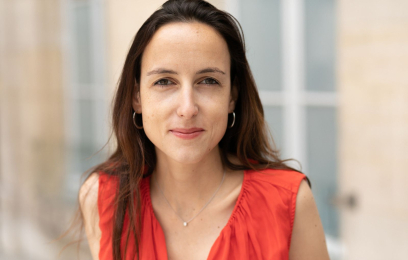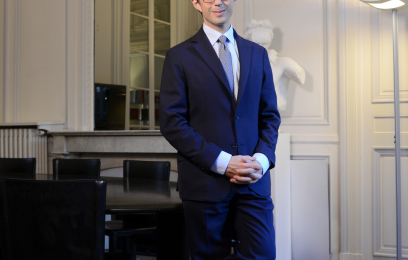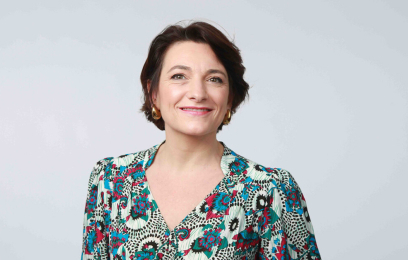EVANSTON, Ill. — The U7+ Alliance today issued a statement asking G7 leaders to take into account the interests of future generations as the world recovers from the COVID-19 pandemic and seeks to mitigate the effects of climate change.
The Alliance, a group of universities spanning six continents and representing all of the G7 nations as well as 10 other nations, urged world leaders to harness opportunities for equitable resource-sharing across generations and recognize universities’ role as primary global actors.
“As an alliance of universities, we sit at the crossroads of generations—in a space where knowledge is generated and new, bolder visions for the future are imagined—and have committed to serving as platforms for open intergenerational dialogue,” the statement reads.
The G7 leaders are set to arrive today in the UK with coronavirus recovery topping the agenda. Resilience against future pandemics, the Alliance statement says, hinges on the education of citizens. “The preparation of the next generation of leaders must be a paramount concern,” the statement reads.
On climate, the Alliance emphasized the commitment of its members to addressing environmental issues through providing access to related courses, facilitating intergenerational dialogues and actively working to reduce their own greenhouse gas emissions from by 2030.
The Alliance also urged the G7 to incorporate the intergenerational lens as they advocate for the values of democracy, human rights and free speech. It also called on world leaders to promote access to higher education for youth from marginalized backgrounds.
The U7+ Alliance is the first international coalition of university presidents aimed at structuring and advancing the role of universities as global actors across the multilateral agenda. Alliance members meet annually to establish a common agenda and identify key areas for coordinated action. Sciences Po hosted the first Summit in Paris in July 2019 under the high patronage of French President Emmanuel Macron.
In 2020, Northwestern was the first U.S. university to host the U7+ Summit, bringing together nearly 100 university leaders from 48 institutions across 17 countries who unanimously voted to prioritize intergenerational justice.
This year, Northwestern University has been elected to serve as the first Secretariat of the Alliance, which will be housed at the Roberta Buffett Institute for Global Affairs and led by Annelise Riles, Executive Director of the Buffett Institute and Associate Provost for Global Affairs at Northwestern. As Secretariat, Northwestern will convene a series of intergenerational roundtables, which will bring together students, faculty and administrators from across the U7+ network for discussion and debate on critical global challenges. Northwestern leaders and faculty will also play a role in each of the U7+ Alliance’s working groups dedicated to taking concrete actions toward fulfilling commitments ranging from improving energy efficiency and reducing greenhouse gas emissions to developing students’ inclusive leadership and global citizenship capacities.
Please find the statement attached
MEDIA CONTACT: Marie Frocrain : marie.frocrain@sciencespo.fr / 01 49 54 37 71

02.04.2025
JULIA CAGÉ, PROFESSOR AT SCIENCES PO, AWARDED THE PRESTIGIOUS YRJÖ JAHNSSON PRIZE 2025
2 april 2025, Paris – Julia Cagé, Professor of Economics in the Department of Economics at Sciences Po, has been named co-recipient of the 2025 Yrjö Jahnsson Prize.
This European prize, awarded every two years by the European Economic Association (EEA) and the Yrjö Jahnsson Foundation, recognises economists under the age of 45 for their outstanding contributions to economic research in Europe. She is the first French economist to receive this distinction in 12 years.
"I extend my warmest congratulations to Julia Cagé for this prize, which recognizes the excellence of her research. At Sciences Po, we are proud to see a scholar whose work sheds light on the major democratic challenges of our time, particularly issues related to media independence and political transparency, receive such recognition. This award once again highlights the vitality of our academic research and its ability to inform public debate," Luis Vassy, President of Sciences Po.
Julia Cagé shares the prize with economist David Yanagizawa-Drott (University of Zurich). The selection committee praised their joint work in political economy and media studies, particularly their historical analyses of France, the United States, and Africa. The jury emphasised “the crucial importance of media independence for a healthy democracy” and the relevance of their research on the risks of controlled media systems.
Julia Cagé joined Sciences Po in 2014 after earning her PhD in Economics from Harvard University. She is an Associate Professor in the Department of Economics and, since 2018, has served as co-director of the “Democracy Evaluation” research group at Sciences Po’s Laboratory for Interdisciplinary Evaluation of Public Policies (LIEPP). Her research focuses on media economics, political participation, and social inequalities. In 2023, she was also awarded the Best Young Economist Prize by Le Monde and the Cercle des économistes.
Her recent projects explore issues related to the circulation of information in the digital age, disinformation, and the financing of electoral campaigns. In 2021, she received a prestigious ERC Starting Grant for her PARTICIPATE project, and has since secured several major grants, including from Project Liberty.
This is the first time that an economist from Sciences Po’s Department of Economics has received this award. Sciences Po thus becomes the third French university to count a Yrjö Jahnsson Prize laureate among its faculty, alongside the Toulouse School of Economics and the Paris School of Economics.
Read more

